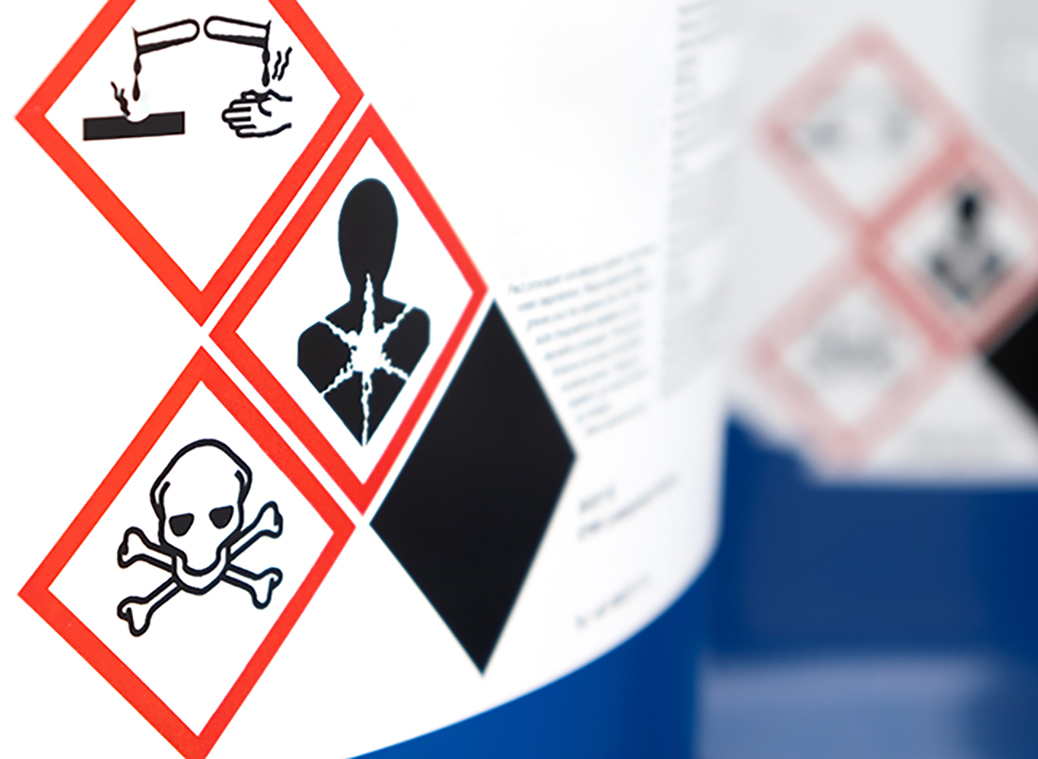Per- and polyfluoroalkyl substances harbor environmental and health risks
Widely spread, with a very long half-life and potentially toxic:
The substances of the PFAS group used by industry in many ways are currently being intensely discussed. In Germany, the carcinogenic chemicals have already been detected in 1500 locations. Manufacturers from almost all industrial areas have to prepare for a possible ban on these substances and look out for suitable alternatives.

What are per- and polyfluoroalkyl substances (PFASs)?
The PFASs are a group of over 4 000 highly fluorinated substances, which are also know under the abbreviation PFCs (perfluorinated chemicals). Due to their high mobility in the environment the PFASs can nowadays be already detected even in the remote areas of the earth. It is almost impossible to remove PFASs from the environment once they have been released, that’s why they will keep on accumulating and become a danger to future generations if no countermeasures will be taken. Among the best known PFAS plastic polymers is polytetrafluorethylene (PTFE), which has become famous as a non-stick coating for cookware under the trade name Teflon™.
Where will PFASs be used?
PFASs can be found in many products – they will be used in almost all industrial areas. These include turbines, solar panels, medical devices, textiles, the coatings of food packaging, fire extinguisher foams and cosmetics.
Also in the production of semiconductors, in different cables, plug connectors, batteries, electrical drive technology, heat pumps, medical and measuring technology as well as in the manufacturing of home appliances the substances will be used. They will be also called “eternal chemicals” because they have a long half-life and remain in the environment for many generations.
What functions do PFASs have in products?
Often the substances from the PFAS group serve as flame retardants in furniture or electronic devices, as stain repellants in textiles or as a UV filter in cosmetic products.
What are the health risks due to PFASs?
The PFASs are known for potential health- and environmental risks. They end up in wastewater and the environment and thus enter the food chain of humans and animals. Here the hazardous substances accumulate in the tissue and can lead to the damage of immune- and hormone system and of fat metabolism.
As consumer it is recommended to pay attention to PFASs and PFASs-(PFC)-free products when purchasing cosmetics – and to select clothing with fluorine-free impregnation as well.
Planned measures in regard to PFASs
Some governments have now taken the measures and want to restrict the use of PFASs. Products containing PFASs shall be monitored and tested. Furthermore, PFAS already present in the environment shall be detected and removed using suitable processes as much as possible. At the global level, there are already restrictions and report requirements for certain substances from the PFAS group. On the European level, these will be mainly implemented by the POP regulation (persistent organic pollutants) and REACH regulation.
Summary
The PFA substances will be used in almost all industrial areas. For that reason a limitation or prohibition of PFASs for the manufacturers within EU will have far-reaching consequences. Companies which use PFA substances for the manufacturing of their products shall now become active. Due to the materials causing high health risks and damages it is to expect that ECHA will accept the proposal for the ban on PFA substances. Some exclusions can be expected, nonetheless the companies shall check their products and supply chains to find alternatives timely to be armed for the ban on PFASs.
You can find further information here:
ECHA
https://echa.europa.eu/de/hot-topics/perfluoroalkyl-chemicals-pfas
ChemTrust
https://chemtrust.org/